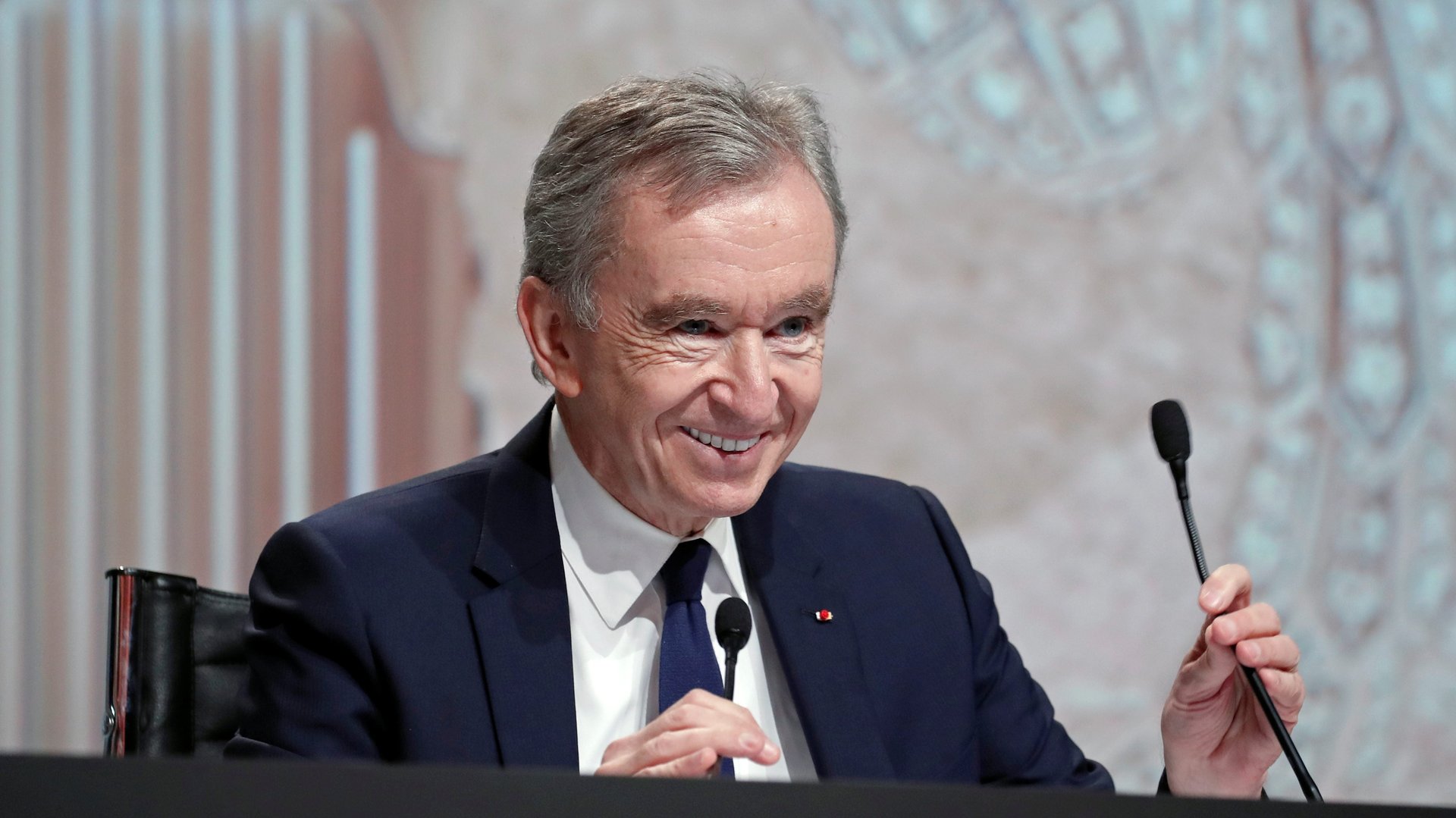The man behind Dior and Louis Vuitton unseated Bill Gates as second richest person
There are three people on the planet with fortunes greater than $100 billion. One is the world’s current richest tycoon, Jeff Bezos, founder and CEO of Amazon. Another is Bill Gates, co-founder of Microsoft, who was the world’s second-richest human—until now.


There are three people on the planet with fortunes greater than $100 billion. One is the world’s current richest tycoon, Jeff Bezos, founder and CEO of Amazon. Another is Bill Gates, co-founder of Microsoft, who was the world’s second-richest human—until now.
The newest claimant of the No. 2 slot, according to Bloomberg’s Billionaires Index, is the final man in the $100 billion club: Bernard Arnault, chairman and CEO of LVMH.
Arnault and his family are the majority owners of Christian Dior and LVMH, parent of such brands as Louis Vuitton, Celine, Fendi, Moët, Hennessy, Dom Pérignon, and others. (Dior is now under LVMH too, but it was held separately until 2017.) As LVMH’s share price has soared this year, so has Arnault’s worth. It now stands at about $107.6 billion, more than $200 million ahead of Gates, Bloomberg estimates.
Arnault’s new ranking comes with one caveat: If not for Gates’s tremendous philanthropic giveaways, Gates would be the richest person, even ahead of Bezos. Arnault isn’t likely to complain either way.
The French entrepreneur entered the luxury industry in 1984, when he bought Boussac, a textile empire in the midst of bankruptcy that owned Dior. The famed label by then had deteriorated by licensing its name out to companies producing sub-par products. Arnault set about reviving it, turning it into a vertically integrated company that did its own production, distribution, and marketing. He would go on to buy up other brands, such as Céline, and in 1988 engineered the deal that made him the majority shareholder of LVMH.
By then he had displayed a talent for shrewd maneuvering that would assure his success, as journalist Dana Thomas detailed in her book Deluxe: How Luxury Lost its Luster. According to Thomas, Arnault was brought into LVMH by its vice chairman, Henry Racamier, to help him in his power struggle with chairman Alain Chevalier. Arnault then secretly negotiated a bargain with Chevalier to take a controlling stake. Racamier and Arnault became entangled in a rancorous public battle dubbed the “LVMH Affair.” Arnault emerged the winner, and in 1990 Racamier resigned from the company. Thomas notes in Deluxe, “The French daily Libération called Arnault ‘the Machiavelli of finance.'”
Arnault would go on to help build the model for much of luxury today. He acquired more fashion houses, installed star designers to make headline-grabbing runways collections, and used the shows as marketing spectacles to sell the real moneymakers: bags, accessories, and perfume that attracted high-end shoppers and offered the mass market an entry into the world of luxury. LVMH tightly controlled the production and distribution of its brands, and margins grew.
Forbes currently ranks Dior as the world’s largest fashion brand based on sales, profits, assets, and market value. LVMH on the whole, meanwhile, keeps attracting customers around the world, with China being the latest highly profitable frontier.